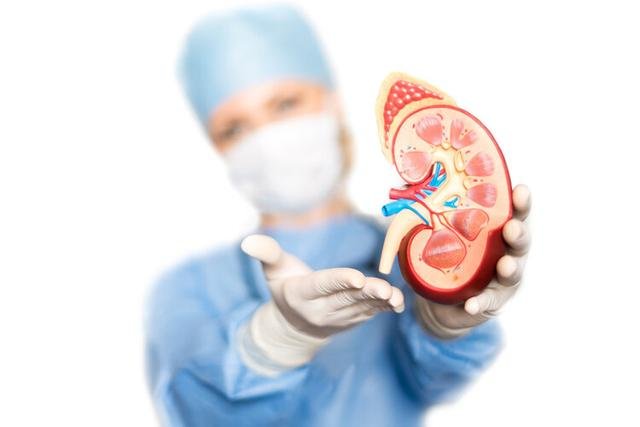
When uremia appears, be alert to the three major symptoms of the lower limbs
First, lower extremity edema
We know that the kidney can regulate the balance of water and sodium in the body, so when the kidney function is abnormal, it will cause metabolic disorders and make the body's acid-base imbalance. At this time, due to the weakening of the body's excretion capacity, and the decrease in urine output, it is easy to cause water and sodium retention. The most intuitive manifestation is edema of the lower extremities, followed by edema of the eyelids.

Second, lower limb bone disease
After suffering from uremia, patients are prone to loss of appetite and malnutrition. Insufficient nutritional intake will also affect the normal development of bones. Therefore, most patients with uremia will have bone dysplasia, osteoporosis and other problems.
And with the continued development of the disease, the symptoms of bone lesions will become more serious, especially the lower limb bone pain becomes more and more obvious. In severe cases, there may even be problems of walking inconvenience and even spontaneous fractures.
Third, the lower limbs are cold and the skin is white
Traditional Chinese medicine believes that the kidney meridian originates from the soles of the feet of the human body, so kidney health can also be observed through the legs and feet.
If you suffer from uremia, abnormal kidney function at this time may cause abnormal coldness in the lower limbs, especially the pale skin of the calf without any blood color, which is a manifestation of kidney deficiency.
In addition, too dry little toes usually indicates insufficient kidney qi, because under normal circumstances, the toes should be pink and tender. If the toenails are white, you need to be alert for anemia, malnutrition and other problems caused by abnormal kidney function. You should be active Seek medical examination to confirm the diagnosis.
Suffering from uremia, there will be these four main manifestations
In addition to the above three obvious lower limb clinical symptoms, uremia patients will actually have four major systemic symptoms after suffering from uremia. Friends should pay attention and be vigilant!
• Yellow or black skin all over
Dean Wang Tiemin explained that the skin of uremic patients will be darker, which is caused by the delay in removing toxins from the body after the gradual loss of renal function in uremic patients.
In fact, there are two main metabolic pathways for toxins in the human body. One is excreted in urine through the kidneys, and the other is excreted in sweat through sweat glands. However, patients with uremia have significantly less urine output due to impaired renal function in the later stage, and perspiration is difficult. Become the main metabolic pathway.
After certain toxins are discharged through the skin sweat glands, they may cause yellowing of the skin, and in severe cases, even blackening of the skin, and even skin itching due to the accumulation of toxins.
In addition, under normal circumstances, the kidneys secrete erythropoietin, and uremic patients will affect the production and secretion of erythropoietin due to impaired renal function. The number of red blood cells decreases and anemia symptoms occur. This is also a patient with uremia. One major cause of yellow skin.
• Physical weakness, poor spirits
Nowadays, more and more young people are suffering from uremia. In fact, uremia patients will experience symptoms such as physical fatigue and mental insufficiency in the early stage. Most people think that it is caused by busy work or mental stress. This wrong perception makes Everyone failed to discover uremia in the first time.
In the later stage of uremia, the more severe the renal function is damaged, the more toxins accumulate in the body, the more obvious the feeling of extreme fatigue.

• Loss of appetite, poor appetite
The most obvious point of uremia is that it affects the excretion function of the kidneys, because the accumulation of toxins then interferes with the normal digestive function. As the disease worsens and the course of the disease prolongs, the discomforts such as nausea, vomiting and abdominal distension in uremic patients become more serious. The symptoms of loss of appetite that appear in the early stages of uremia can easily be misdiagnosed as general digestive diseases.
• Abnormal urination, increased blood pressure
Kidney damage in patients with uremia can cause water and sodium retention and cause high blood pressure. In addition, after the kidney is damaged, the decline in filtration function can directly lead to oliguria and anuria in uremia patients, and even further cause hypovolemia, hyponatremia and other problems due to water and sodium retention.
Because the urine of patients with uremia is concentrated, it looks cloudy to the naked eye. A urine test can find proteinuria, red blood cells, white blood cells, etc., especially when there are more red blood cells in the urine. There may even be hematuria. .
To prevent uremia, five aspects must be done well!
Once suffering from uremia, kidney function cannot be maintained in a normal state, and it often requires kidney transplantation or long-term dialysis treatment to prolong life. The treatment process is very painful and tormenting. This also tells us that we should usually protect and maintain our kidney health. And we must learn to actively prevent uremia in the right way.
To prevent uremia, it is necessary to control the primary diseases, including high blood pressure, hyperlipidemia, and diabetes. These diseases can cause damage to the kidneys during the development process. Therefore, patients with such diseases must strictly follow the doctor's prescription and control their blood pressure, blood lipids and blood sugar within a reasonable range.
Prevention of uremia can also start from controlling daily eating habits, especially limiting the intake of foods with high cadmium content, such as animal liver damage to human kidneys.

In addition, modern people like to drink carbonated beverages, but they do not know that carbonated beverages not only have no nutritional value, but excessive intake can even increase the risk of kidney stones, kidney failure and other kidney diseases.
It is generally recommended that the usual diet is light and focus on nutrition, not overeating and limiting protein intake, and pay attention to the daily salt intake to be controlled below 5 grams.
The most important point is that we need to develop good work and rest habits daily instead of staying up late frequently, and not overworked. Keep a good mood instead of holding negative emotions such as depression and tension. At the same time, we must pay attention to developing good urination habits to avoid holding back. Urine behavior!